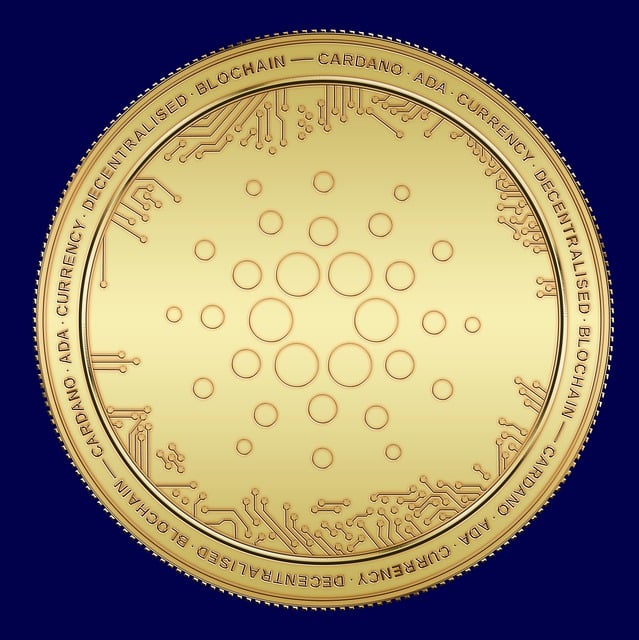
Cardano is revolutionizing blockchain technology with its energy-efficient Proof-of-Stake (PoS) consensus mechanism, addressing the environmental concerns of traditional Proof-of-Work (PoW) systems used by rival blockchains. By allowing users to 'stake' their coins for network security, Cardano significantly reduces energy consumption and carbon emissions, setting a new standard for sustainability in blockchain tech. This innovative approach positions Cardano as an eco-friendly leader, aiming to minimize the environmental impact of cryptocurrency while offering faster confirmation times and a competitive edge.
In the quest for a sustainable blockchain, Cardano stands out as a pioneer. This article explores how Cardano’s innovative approach to energy efficiency sets it apart from its peers. We’ll delve into their unique method of achieving this, leveraging Proof-of-Stake (PoS) technology, and examine the significant reduction in power requirements and carbon footprint it facilitates. Additionally, we’ll discuss Cardano’s long-term vision for a greener blockchain future.
- Understanding Cardano's Unique Approach to Energy Efficiency
- The Current State of Blockchain Energy Consumption
- How Cardano Utilizes Proof-of-Stake (PoS) for Lower Energy Use
- Benefits of PoS: Reducing Power Requirements and Carbon Footprint
- Cardano's Long-Term Vision for a Sustainable Blockchain Future
Understanding Cardano's Unique Approach to Energy Efficiency

Cardano’s unique approach to energy efficiency lies in its innovative consensus mechanism, Proof-of-Stake (PoS). Unlike traditional Proof-of-Work (PoW) systems used by many blockchains, which require intensive computational power and thus consume vast amounts of energy, PoS operates on a different principle. Cardano allows users to ‘stake’ their coins to validate transactions and secure the network. This process doesn’t involve complex mathematical problems, reducing the energy demand significantly.
By utilizing Proof-of-Stake, Cardano aims to make blockchain technology more sustainable and environmentally friendly. This approach not only reduces electricity consumption but also promotes a more decentralized and democratic participation model within the network. It’s this dual focus on efficiency and decentralization that sets Cardano apart in the blockchain space.
The Current State of Blockchain Energy Consumption

The current state of blockchain technology, while innovative and revolutionary, has raised significant concerns regarding its environmental impact. Blockchain’s energy consumption has become a hotly debated topic, especially with the increasing popularity of proof-of-work (PoW) consensus algorithms. These algorithms power many prominent blockchains, such as Bitcoin, demanding massive computational power and resulting in substantial electricity usage. This high energy demand often translates to carbon emissions, raising questions about the sustainability of blockchain’s current trajectory.
Cardano aims to address this pressing issue by adopting a more eco-friendly approach. It utilizes a proof-of-stake (PoS) consensus mechanism, which dramatically reduces energy consumption compared to PoW. This shift in consensus algorithms is a significant step towards making blockchain technology more sustainable. By prioritizing energy efficiency, Cardano sets a new standard, demonstrating that innovation and environmental responsibility can go hand in hand.
How Cardano Utilizes Proof-of-Stake (PoS) for Lower Energy Use

Cardano leverages Proof-of-Stake (PoS) consensus mechanism as a key strategy to achieve remarkable energy efficiency. Unlike Proof-of-Work (PoW) systems, where complex mathematical problems are solved, PoS relies on staking and selecting validators based on the number of coins they hold. This approach significantly reduces energy consumption since there’s no need for intensive computational power or specialized hardware.
By utilizing PoS, Cardano allows users to participate in securing the network by simply owning and locking their ADA tokens. This process, known as staking, enables a more sustainable and environmentally friendly operation compared to blockchain networks that utilize PoW, making Cardano a frontrunner in the race for energy-efficient technologies.
Benefits of PoS: Reducing Power Requirements and Carbon Footprint

Cardano’s adoption of Proof-of-Stake (PoS) consensus mechanism offers significant advantages in terms of energy efficiency and sustainability. Unlike Proof-of-Work (PoW) systems, which require vast computational power and lead to high energy consumption, PoS reduces power requirements dramatically. This is because the process involves validating transactions based on stake ownership rather than complex mathematical puzzles. As a result, Cardano’s network can achieve faster confirmation times while significantly lowering its carbon footprint.
By utilizing PoS, Cardano aims to mitigate the environmental impact often associated with blockchain technology. Traditional blockchains struggle with scalability and energy-intensive operations, but Cardano’s innovative approach promises a greener alternative. This shift towards sustainability is a key differentiator for Cardano in the competitive blockchain space, setting it apart as an eco-conscious leader in the industry.
Cardano's Long-Term Vision for a Sustainable Blockchain Future

Cardano has a clear and ambitious vision for the future of blockchain technology, focusing on sustainability as its core principle. The project aims to create a decentralized ecosystem that is not only energy-efficient but also environmentally friendly, marking a significant departure from the high-energy consumption associated with many other blockchains. By leveraging advanced mathematical algorithms and a unique consensus mechanism, Cardano promises to deliver secure transactions while minimizing its carbon footprint.
This long-term strategy positions Cardano as a leader in the green blockchain movement, addressing the pressing environmental concerns surrounding cryptocurrency. As the demand for blockchain solutions continues to grow, Cardano’s commitment to sustainability ensures that its network remains not only technologically robust but also socially responsible, setting it apart from competitors and paving the way for a more eco-conscious digital future.
Cardano’s commitment to energy efficiency through its unique Proof-of-Stake mechanism sets it apart in the blockchain space. By prioritizing sustainability, Cardano aims to reduce the environmental impact of cryptocurrency operations. This long-term vision positions Cardano as a leading force in the pursuit of a greener and more efficient blockchain future, offering a promising path forward for both technology and the planet.





